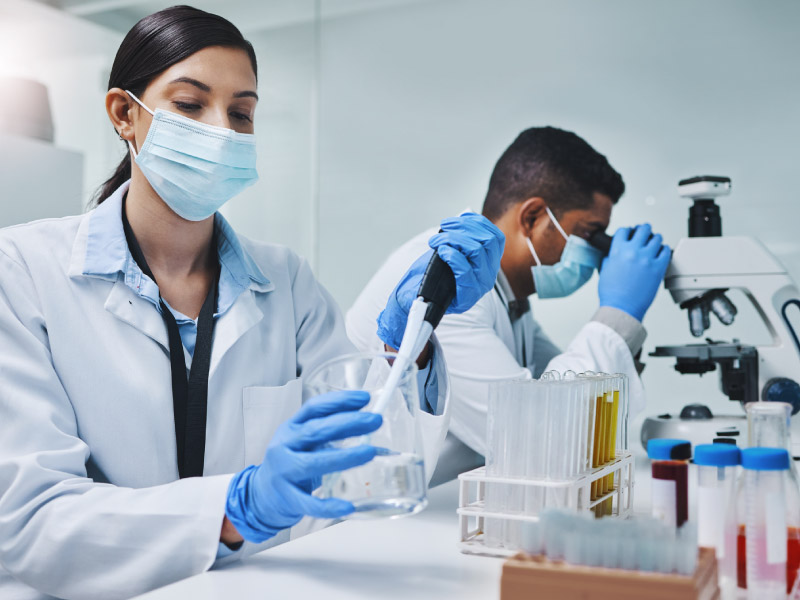Pandemic caused massive disruption to scientific research
By American Heart Association News

The COVID-19 pandemic prompted a series of rolling shutdowns early last year that sharply curtailed scientific research of other diseases, temporarily halted many clinical trials, restricted access to laboratories and closed medical research facilities, according to a new report from the American Heart Association.
Yet at the same time, the authors wrote, extraordinary success was achieved by redirecting resources to rapidly develop therapies and vaccines to thwart the global health crisis.
"Over the last 18 months of the COVID-19 pandemic, we've seen remarkable scientific successes in the face of tremendous challenge," writing group chair Dr. Elizabeth M. McNally said in a news release. "However, research laboratories everywhere have faced daily impediments that began with laboratory shutdowns, followed by the need to social distance, illness, supply chain limitations, and many other obstacles that have hit every phase and every type of research."
The presidential advisory, published Monday in the AHA journal Circulation, details the ripple effect on current and future heart disease and stroke research. It urges immediate efforts to restore investment in scientific research, provide greater resources for scientists and health care professionals disproportionately impacted by the pandemic, and increase the public's understanding of science.
"The pandemic has illustrated why science matters, and we must re-invest in the scientific infrastructure to rebuild science – so we are ready for the next challenges that come our way," said McNally, director of the Center for Genetic Medicine at Northwestern University's Feinberg School Medicine in Chicago.
When the pandemic hit in early 2020, shelter-in-place orders in the U.S. and nations around the world effectively shut down research labs. In order to reopen safely, only a limited number of staff could be on-site at any given time. Many clinical trials were halted to protect patient safety. Funding sources were reduced, supply chains for research materials and equipment were disrupted and remain so.
The pandemic made it difficult to hire and train needed staff. And many existing staff had to set aside research responsibilities to provide COVID-19 care at their hospitals. What's more, school closings created challenges for researchers and clinicians who had to help their children who were now learning from home.
"Scientists who are parents of young children have especially struggled because, for most researchers, it is simply not possible to do research from home since the home is not a laboratory," McNally said.
These challenges disproportionately impacted early-career researchers, women and scientists from racial and ethnic groups underrepresented in medicine, the report found.
As of May 21, roughly 80% of non-COVID trials on ClinicalTrials.gov had been stopped or interrupted, the report found. Many researchers and labs shifted their focus to COVID-related work. This massive collaborative effort helped tackle the public health crisis and also led to advances in the way data is integrated and analyzed that will have lasting impacts on how future research is conducted.
Steps are needed, however, to rebuild the scientific community, the report said. These include increased federal research funding, support for scientists and institutions, more virtual and networking opportunities for scientific meetings, and greater opportunities for collaborative science using technology. It also urged a long-term commitment to funding education in science, technology, engineering and math to increase public understanding of science and build a society more resilient to public health crises.
"We are at risk of losing a generation of scientists, which may potentially set back progress on discovering treatments for diseases," Dr. Mitchell Elkind, vice chair of the report's writing group, said in the release. Elkind is immediate past president of the AHA and professor of neurology and epidemiology at Columbia University in New York City.
"We have to act quickly to direct resources to this problem before these consequences become irreversible," he said. "And we must ensure these resources and efforts are spread equitably throughout society to ensure that all segments of society may benefit."
If you have questions or comments about this story, please email [email protected].





